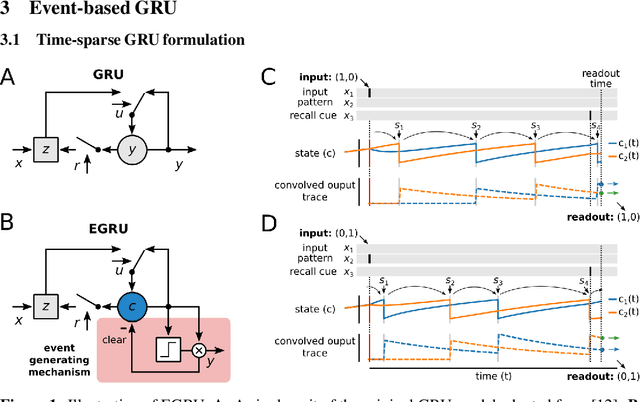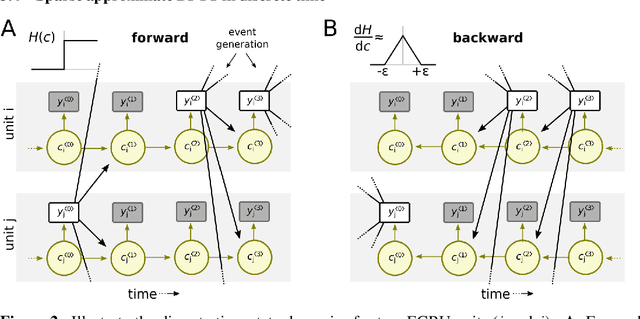EGRU: Event-based GRU for activity-sparse inference and learning
Paper and Code
Jun 13, 2022



The scalability of recurrent neural networks (RNNs) is hindered by the sequential dependence of each time step's computation on the previous time step's output. Therefore, one way to speed up and scale RNNs is to reduce the computation required at each time step independent of model size and task. In this paper, we propose a model that reformulates Gated Recurrent Units (GRU) as an event-based activity-sparse model that we call the Event-based GRU (EGRU), where units compute updates only on receipt of input events (event-based) from other units. When combined with having only a small fraction of the units active at a time (activity-sparse), this model has the potential to be vastly more compute efficient than current RNNs. Notably, activity-sparsity in our model also translates into sparse parameter updates during gradient descent, extending this compute efficiency to the training phase. We show that the EGRU demonstrates competitive performance compared to state-of-the-art recurrent network models in real-world tasks, including language modeling while maintaining high activity sparsity naturally during inference and training. This sets the stage for the next generation of recurrent networks that are scalable and more suitable for novel neuromorphic hardware.
 Add to Chrome
Add to Chrome Add to Firefox
Add to Firefox Add to Edge
Add to Edge